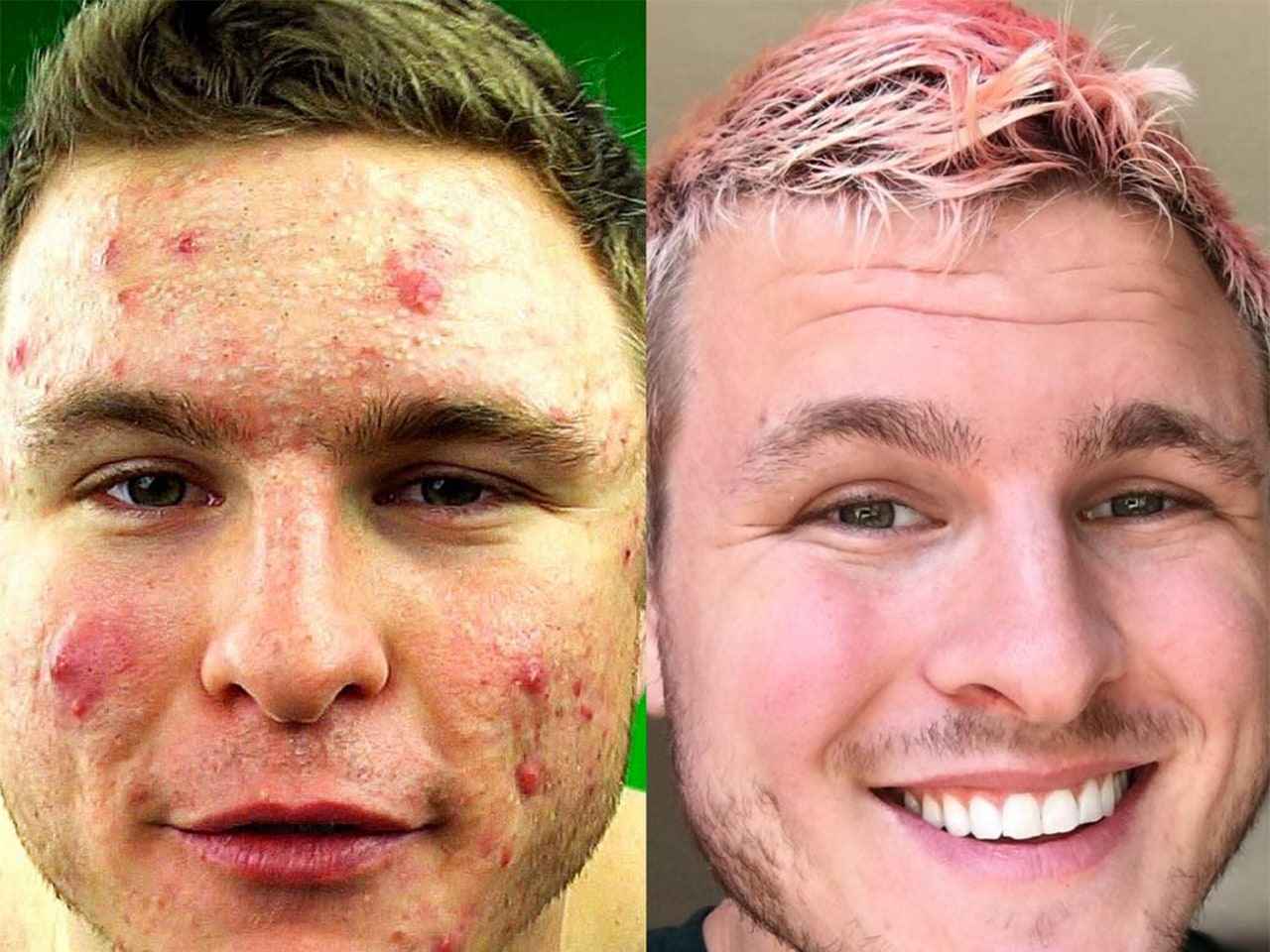To Get Rid Of Acne, You Might Need To Change Your Sheets More Often
Bodybuilder Brian Turner first caught people’s attention in September when he revealed that going dairy-free helped him transition from having severe acne to clear skin. Now, he’s back with new advice for those looking to have the same skin success he’s achieved.

First of all, it's worth noting that Turner originally used Accutane , a prescription acne medication, for 70 weeks to clear up his skin. But after that, his acne started coming back, so he decided to fight it in a different way. Among suggestions like cutting back on processed food and dairy, in a new YouTube video, Turner advocates for changing your sheets daily if you want to nix pimples. “Change your [pillowcases],” he says. “If you have body acne, change your bedsheets every single night.” Turner says his skin has been “100 percent clear, except for the occasional small whitehead,” since he’s made these changes.
Doing this much laundry is on the extreme side, but having clean sheets is important, Gary Goldenberg , M.D., medical director of the Dermatology Faculty Practice at the Icahn School of Medicine at Mount Sinai, tells SELF. “Changing sheets daily may be a little too much work, but making sure your skin is in clean environment can definitely make a difference,” he says. “This goes along with cleansing your skin twice daily with a gentle wash, or salicylic acid or benzoyl peroxide if you already have acne.”
But if you're ready and willing to change your pillowcase every day, like Turner, go for it. Although it's not the only thing that helped him overhaul is skin, it played a part in his transformation, which you can check out below:
Instagram content
View on Instagram
It makes sense that a dirty pillowcase could translate into acne. “Every night when you sleep, dirt, and oil are transferred from your skin to your sheets,” Joshua Zeichner , M.D., a New York City-based board-certified dermatologist, tells SELF. “Especially if you also aren't washing your face regularly before bed, dirt and oil can build up in the fabrics of your pillowcases and sheets over time.”
When you move around in your sleep , you create friction, and if your pillowcase is dirty, it can cause a breakout if you’re predisposed to acne, Zeichner says. “Your best bet to wash your sheets regularly,” he says.
If you’re not acne-prone this isn’t as big of a deal for you. “Acne is caused by a combination of inflammation in your skin, high oil levels, acne-causing bacteria, and sticky skin cells within your follicles blocking oil from freely flowing out,” Zeichner explains. “While dirty sheets may cause an acne flare in someone genetically prone, dirty sheets alone are not likely enough to cause acne in someone who doesn't otherwise have it.”
However, dirty sheets won’t do your skin any favors, regardless of how acne-prone you are. “Dirty sheets are loaded with bacteria that can cause your skin's immune system to become overwhelmed and increase the chances that bacteria that causes acne will overflow and cause problems,” Goldenberg says. Dirt on dirty sheets can also clog your pores, leading to pimples, he notes.
Before you chuck your sheets in the wash, keep this in mind: The detergent you use can have an impact on your skin, too. Both Goldenberg and Zeichner recommend fragrance-free ones, since scents can irritate your skin and make acne-prone skin even worse.
Using too much detergent can also lead to your skin throwing a temper tantrum, Zeichner says. “If the detergent is not fully washed away, it can build up within the weave of the fabric and cause irritation , leaving you with itchy, red, peeling skin.”
Zeichner recommends washing your sheets “at least once per week,” and if you have oily skin, consider changing your pillowcase every other day.
Related:

Write a Comment